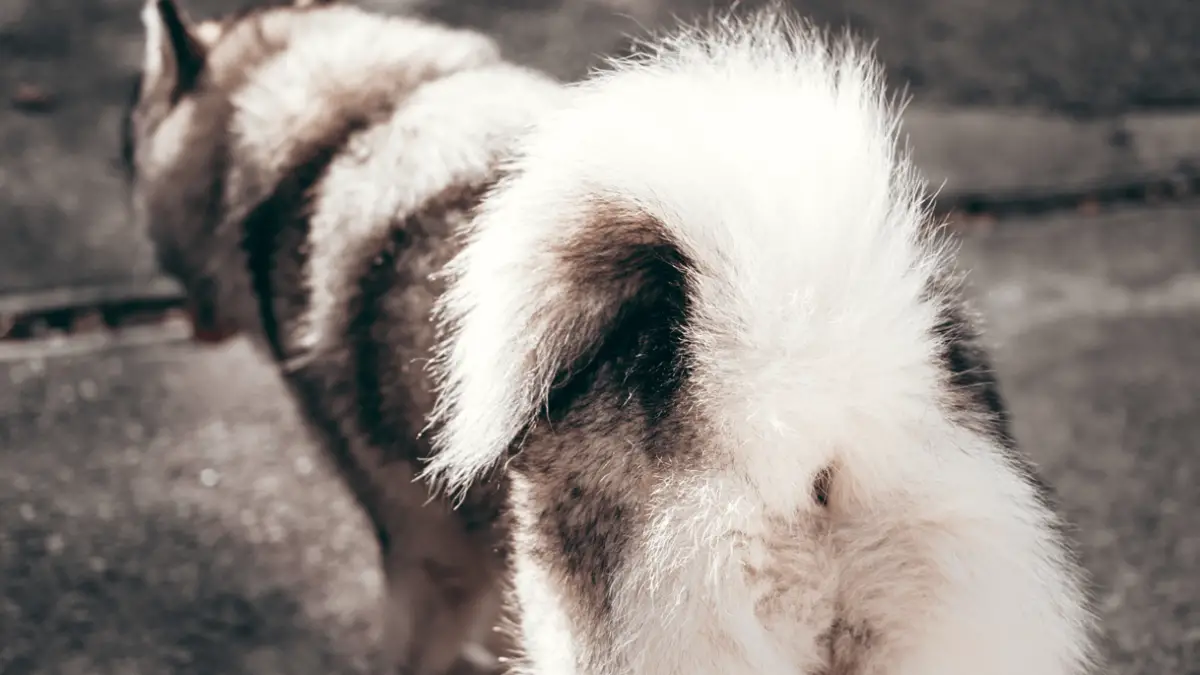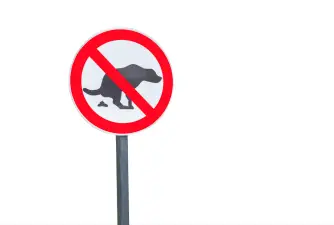Can Dogs Get Hemorrhoids? How To Help Your Dog?
02.11.2021.
Hemorrhoids are a real pain in the… rear. That is true for humans and dogs. They can be quite painful, and many of us know how irritating and uncomfortable hemorrhoids are to treat. Dogs can have anal problems, and many dog owners wonder, “Can dogs get hemorrhoids?” The correct answer is - yes, but they are pretty rare. If you think your dog has hemorrhoids, here are a few things you might want to ask your vet.
What are hemorrhoids?
Before we go into specific questions about hemorrhoids in dogs, we need to understand what they actually are. A hemorrhoid is basically a swollen blood vessel in the anus or the lower part of the rectum. They can cause mild discomfort or severe pain, which can seriously restrict your everyday activities. Even walking can be painful. Going number 2 can be extremely discomforting, so it is no wonder we don’t want our dogs to suffer from hemorrhoids.
Can dogs get hemorrhoids?
As we already mentioned, dogs can get hemorrhoids but rarely get them. Dogs can have different health issues in the same area, and many owners confuse them for hemorrhoids.
How do I know if my dog has hemorrhoids?
There are a few ways you can confirm your suspicions. The easiest way to see if your dog actually has hemorrhoids is by looking at your dog’s rear end. If your dog’s hemorrhoid is pushed outside its anus, it will have a distinct purple or reddish hue under natural light. However, if the hemorrhoid is located on the inside, you will have to look for some of the most common symptoms.

Symptoms of hemorrhoids in dogs
Symptoms of internal hemorrhoids (not visible outside the anus) might be challenging to spot. They are very similar to symptoms of other issues, and vets have to perform a thorough physical examination to determine them. The most common symptoms of internal hemorrhoids in dogs are;
- Dragging the rear end on the ground
- Discomfort while sitting
- Bleeding from the rectum
- Straining while defecating
- Whining while defecating
- Bloody stool
Why do dogs get hemorrhoids?
In humans, hemorrhoids are caused because of straining, sitting on a toilet for long, severe diarrhea, or constipation. In dogs, hemorrhoids can happen as a result of other health issues. For example, if your dog’s bowel and intestines are irritated, it will cause increased blood flow to the area. The increased blood flow will cause a blood vessel to swell up and form a hemorrhoid.
How are they different than human hemorrhoids?
The basics of human and dog hemorrhoids are the same. However, there is one significant difference. Dogs walk on four legs, and their gastrointestinal system is horizontal. We walk on two legs, and our system is vertical. That makes us predisposed to developing hemorrhoids, while dogs, fortunately, rarely experience the same problems.
Our hemorrhoids result from straining, dehydration, sitting on the toilet too long, or poor diet. Dogs develop hemorrhoids as a result of long-lasting gastrointestinal irritations. Dogs and humans have different anatomy and other things, like anal glands, surrounding their anuses.
What are other issues mistaken for hemorrhoids?
As we already mentioned, many dog owners think their dog has hemorrhoids, but their dogs actually have a different issue in the same area. Some of the most common health issues mistaken for hemorrhoids are;
Prolapsed Rectum
A prolapsed rectum happens when internal parts of the anus and rectum protrude on the outside. It can be partial or complete. Partial means it happens only after defecating, and complete means it is constantly visible.
Anal Gland Issues
If you’re a dog owner, you probably heard dogs are susceptible to anal gland problems. They are tiny glands on either side of the dog’s anus. They contain fluids that will get pressed out when the dog passes poop. If they are not properly drained, they can get inflamed and mistaken for hemorrhoids. You can read more about it here - Anal Glands In Dogs.
How are dog hemorrhoids treated?
The best way to treat dog hemorrhoids is by treating the exact issue that causes them. If you root out the irritation causing problems to your dog, you will get rid of your dog’s hemorrhoids. Your vet might recommend topical creams or ointments that will shrink hemorrhoids. They will most likely advise your dog to take dietary supplements or drugs that will ease their gastrointestinal irritations. The exact treatment will depend on the exact cause, so one case can be completely different from the other.
In conclusion
Dogs can get hemorrhoids, but they are not very common. There are other health problems that owners might mistake for dog hemorrhoids, like anal gland issues or prolapsed rectum. If you suspect your dog might have them, it would be best to visit your vet and see what they say about your dog’s physical condition. In cases where dog hemorrhoids happen, they are most likely caused by long-lasting gastrointestinal irritations.
World Dog Finder team







Share